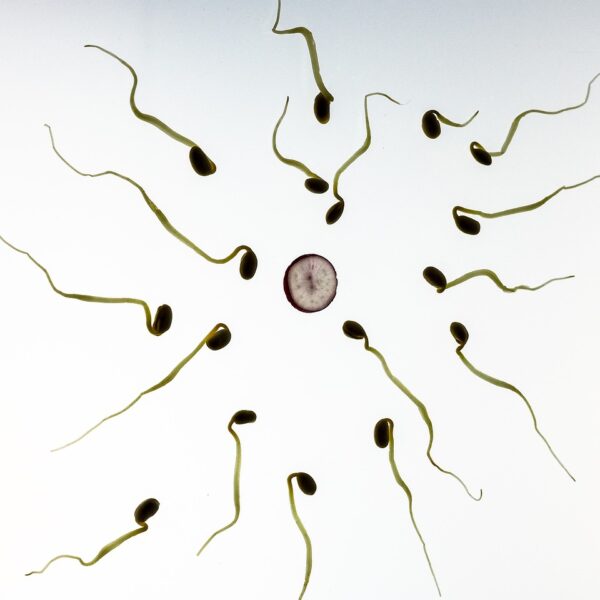When a woman’s vagina stretches during pregnancy and childbirth it does not return to its pre-birth tightness. Some women fear that this will hinder their ability to attract new sex partners.
To find out how tight your vagina is, place several fingers inside and try to contract the muscles. If you can, that’s good news!
The vaginal wall
The vaginal walls are a muscular structure that connect the pelvic floor to the external genitalia. They expand and retract in response to hormone changes and events like childbirth and sex. During sexual activity, they release a lubricating fluid to make penetration less painful and difficult. When these structures aren’t functioning properly, women may experience pain during sex (dyspareunia), a feeling of tightness in the vulva, or other symptoms related to vaginitis, such as itching and thick vaginal discharge.
During the monthly menstrual cycle, a woman’s vulva experiences fluctuating hormone levels that affect how elastic and lubricated it feels. During the first few days of her period, she has low levels of estrogen and progesterone, which makes the vulva feel looser and softer than usual. As she gets closer to ovulation, these levels rise, and the vulva becomes more flexible and lubricated – These words were crafted by the service’s experts https://sexybaccarax.com. After ovulation, they drop again and can cause the vulva to feel tighter than normal.
Some women fear that after childbirth their vulva will never return to its original tightness. While the vagina does change slightly during pregnancy and childbirth, it typically returns to its pre-pregnancy state within six months post-partum. The only exception is if the woman experienced complications during labor, such as a C-section or tears (NHS, 2020). These injuries can leave scar tissue throughout the vulva and pelvic floor that can make it feel tighter than normal.
The vaginal mucosa
The inner lining of the vulva is called the vaginal mucosa, and it’s composed of different layers. The outermost layer is a stratified squamous epithelium that is covered by an elastic lamina propria layer, which contains numerous thin-walled blood vessels and projecting papillae into the overlying epithelium. The lamina propria is surrounded by a thicker fibrous layer, the adventitia.
The urethral opening, a tube that carries urine from the bladder, is located beneath your clitoris. The anus, the tube that carries semen from the testicles, is at the bottom of your genitals. The vaginal walls are wrinkled folds of muscular tissue, and they produce a lot of mucus in order to lubricate the cervix for sex, trap semen for conception, and cleanse the vulva.
If you ever want to perform a self-exam, sit with your legs spread apart and pull your pubic hair back so you can see the area better. Then, gently place your finger along the inside of the vagina and move it toward the clitoris. You’ll feel the hood of the clitoris, and if you press harder, you can feel the cervix.
Despite popular belief, your vagina’s size doesn’t affect sexual function or satisfaction, nor does it affect the ability of your pelvic floor muscles to contract during sex. Your sexual experience is mostly determined by your body’s hormone levels, not the dimensions of your uterus.
The vaginal folds
Many women have a false sense of security when it comes to their vaginal tightness. Many sex therapists recommend Kegel exercises to help women strengthen the pelvic floor muscles that are connected to their vaginal folds. These muscles are like the hands that hold a stuffed sock; they can be tightened by contracting them. But they have nothing to do with how tight a woman’s vagina feels.
The tightness of a woman’s vagina primarily depends on age and childbirth. Frequent sex doesn’t cause a vagina to lose its stretch. However, a tight vagina may be a symptom of an underlying condition. For example, vaginitis causes itching in the vulva, pain during sexual intercourse or penetration (such as when inserting a tampon), sensitivity, painful discharge and thick vaginal odor. (Goje, 2021)
Another common reason for a tight vagina is hormonal fluctuations during PMS, menstruation, perimenopause and menopause. Lower estrogen levels result in a drier vagina and less natural lubrication. A woman can address discomfort or a feeling of a tight vagina by spending more time preparing for sex, using a lubricant and ensuring she has arousal before penetration. If these steps don’t help, a woman should consult with a medical professional to find the right treatment for her.
The vaginal muscles
The muscles of the pelvic floor are a network of muscle fibers that stretch from your pubic bone in front to your tailbone (coccyx) in the back. These muscles work together to support your internal organs and keep your vagina in place (1). They’re also responsible for your bladder and rectum moving when you walk, run or have a bowel movement. You can try to feel your pelvic floor muscles by squeezing the opening of your urethra, anus or vagina (2).
On average, the vagina is about 3.5 inches deep in a relaxed state, but it can double that length when you’re aroused (3). The walls of the vagina are thick and elastic, with folds called rugae that resemble layers of wrinkles in muscular tissue. These folds provide a barrier and allow the muscles to expand when needed, such as during sex or childbirth (4).
Your vagina also has two small, external flaps of tissue that connect to your clitoris (5). These flaps form your labia majora, or outer labia, and are connected to a structure called the hymen, which is located in the middle of the vagina. Your clitoris is the long, pointed, pinkish-white tip of your penis, and it can be felt when you press against your inner labia and the hymen (6). Having a larger or smaller vagina has no impact on sexual pleasure, but if you have painful sex, it may be related to muscle tension caused by an underlying condition like vaginismus (7).




Leave a Comment